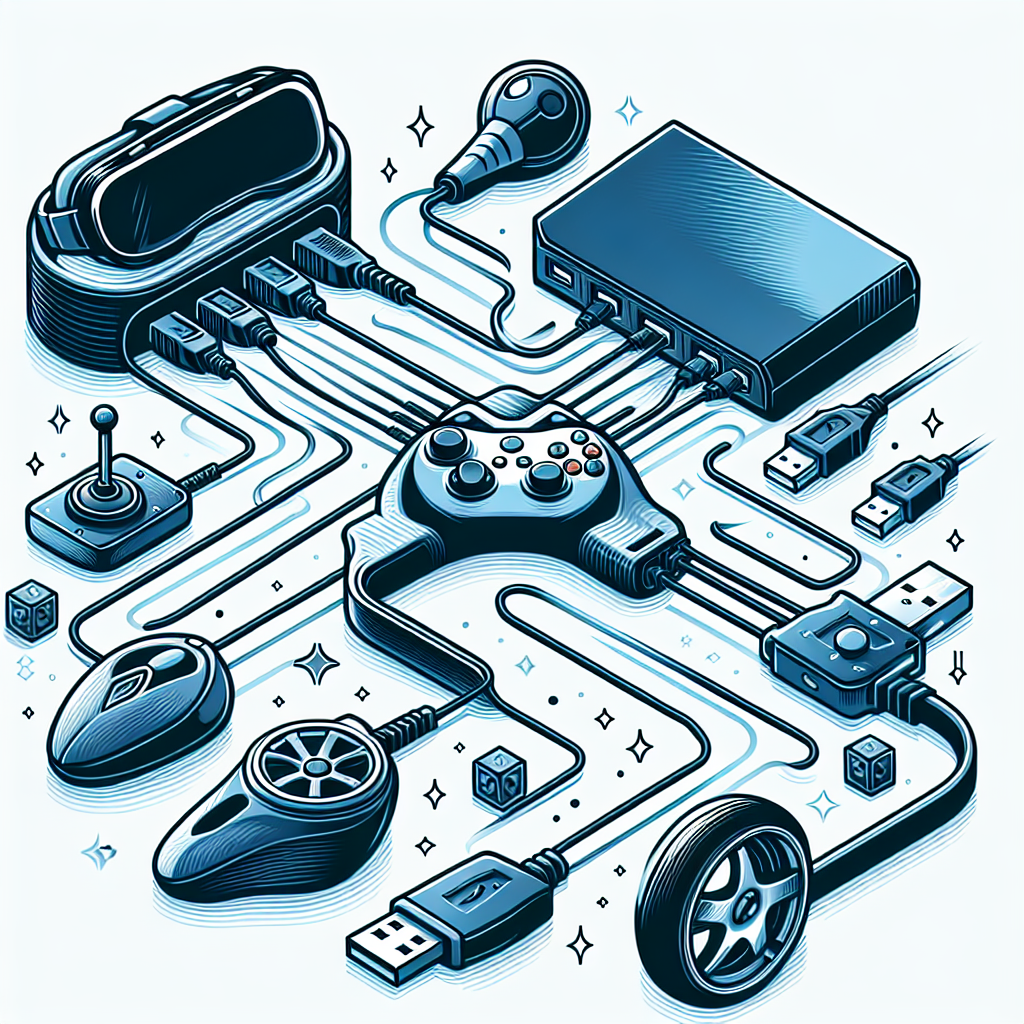Introduction
In the age of gaming consoles where speed and performance are paramount, understanding the role of USB splitters becomes essential for gamers. Many are left questioning whether USB splitters can maintain high-speed data transfer for gaming consoles, considering the various devices connected during gaming sessions. This article aims to provide insights into USB splitters, their functionalities, and their compatibility with high-speed data transfer for gaming consoles.
Understanding USB Splitters
USB splitters, commonly referred to as USB hubs, are devices that enable multiple USB devices to connect to a single USB port on a computer or gaming console. They come in various configurations and types, which can impact their performance, especially in a high-demand gaming environment. Below is a comparative overview of different types of USB splitters:
| Type of USB Splitter | Data Transfer Speed | Number of Ports | Power Source |
|---|---|---|---|
| Passive USB Splitter | Up to 480 Mbps (USB 2.0) | 2-4 | Powered by Host |
| Active USB Splitter | Up to 5 Gbps (USB 3.0) | 4-10 | External Power Supply |
| Hub with Power Delivery | Up to 10 Gbps (USB 3.1) | 4-12 | External Power Supply |
High-Speed Data Transfer Requirements for Gaming Consoles
Gaming consoles require efficient data transfer rates, especially during online gaming, game downloads, and streamlining peripherals. Most major gaming consoles support USB 3.0 or higher MThe performance of a gaming console can be significantly affected if the USB splitter being used does not meet these data transfer standards. Below are the key specifications for USB standards relevant to gaming consoles:
| USB Version | Data Transfer Speed | Backward Compatibility |
|---|---|---|
| USB 2.0 | Up to 480 Mbps | Yes |
| USB 3.0 | Up to 5 Gbps | Yes |
| USB 3.1 | Up to 10 Gbps | Yes |
| USB 3.2 | Up to 20 Gbps | Yes |
Do USB Splitters Support High-Speed Data Transfer for Gaming Consoles?
Ultimately, whether USB splitters support high-speed data transfer for gaming consoles depends on several factors: Type of USB Splitter: Active USB splitters are more likely to provide adequate bandwidth for high-speed devices when used with a gaming console. Conversely, passive splitters may not manage high-speed signals effectively when multiple devices are connected simultaneously.
USB Version Compatibility: Ensure that the USB splitter is compatible with the desired USB version. Using an older USB 2.0 splitter with a high-speed USB 3.0 device will limit the performance significantly.
Power Supply: An active USB splitter with an external power source is recommended for powering multiple devices that draw significant power. Gaming peripherals, like external hard drives, may require more current than a passive splitter can provide.
Implications of Using USB Splitters on Gaming Performance
Using USB splitters can have various implications on gaming performance:
- Reduced Latency: High-quality active splitters minimize latency, ensuring peripherals respond quickly, which is critical for competitive gaming.
- Device Limitations: Some USB splitters may not support specific devices or peripherals due to data transfer limitations.
- Possible Hardware Conflicts: Connecting multiple devices via a passive splitter can lead to conflicts if devices require more bandwidth than is provided.
- Cable Length: The longer the USB cable, the more signal loss occurs. High-quality splitters can help mitigate this, but it is essential to keep cable length in mind.
Recommendations for Gamers Using USB Splitters
For gamers considering the use of USB splitters, here are some recommendations to maximize performance:
- Choose Active USB Splitters: Select active USB splitters that provide external power to ensure sufficient power and data transfer speeds.
- Check USB Versions: Opt for USB 3.0 or higher splitters as they offer faster speeds and better performance.
- Ensure Compatibility: Verify the compatibility of connected devices with the splitter.
- Test Performance: Before engaging in lengthy gaming sessions, test the performance of the splitter with all devices connected.
Conclusion
In conclusion, USB splitters can support high-speed data transfer for gaming consoles; however, their performance largely depends on the type of splitter, USB version compatibility, and power supply considerations. Gamers must carefully assess the USB splitters they use to ensure they can efficiently manage data traffic during gameplay. By choosing the right products and being mindful of connectivity, gamers can enhance their overall gaming experience.

